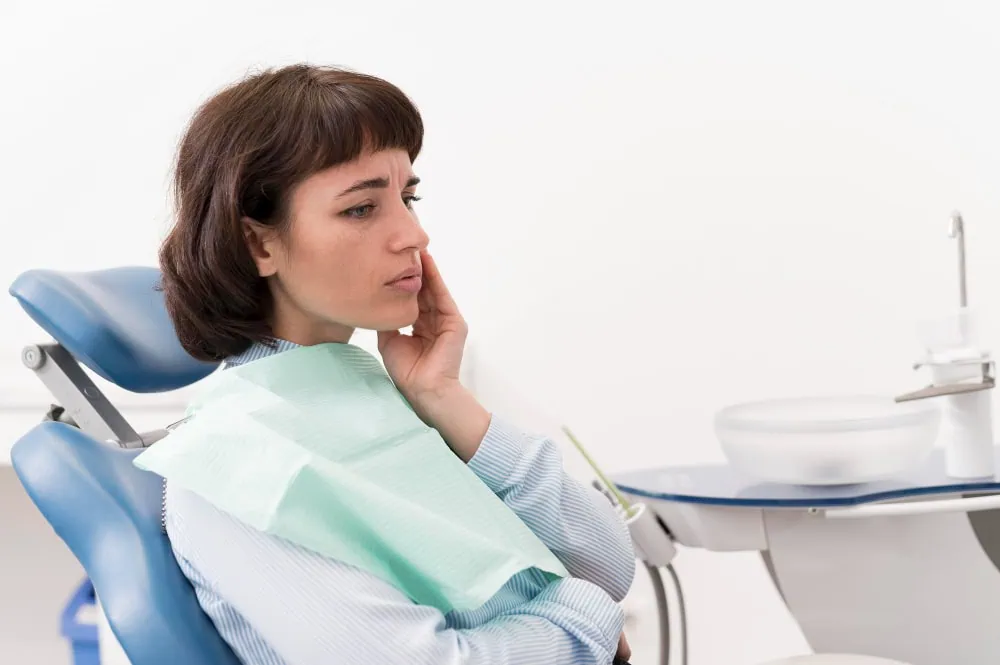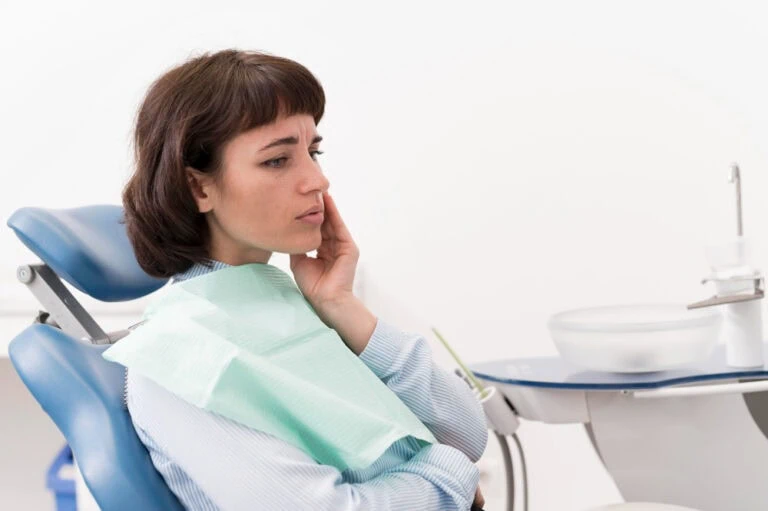Tooth plaque is a common yet often misunderstood issue that affects millions of people worldwide. While tooth plaque itself is not harmful at first, if left untreated, it can lead to serious oral health issues such as cavities, gum disease, and bad breath. In this article, we will explore what tooth plaque is, its causes, the effects it has on oral health, and effective treatments to prevent and manage it.
Definition of tooth plaque
What is tooth plaque?
Tooth plaque is a sticky, colorless film of bacteria that forms on your teeth. According to the American Dental Association, plaque develops naturally from the interaction between food particles, saliva, and the bacteria already present in your mouth. Tooth plaque forms almost immediately after brushing and begins to accumulate again unless regularly cleaned away.
Composition of tooth plaque: bacteria, food particles and saliva
Tooth plaque consists of bacteria, food particles, and saliva. The bacteria feed on the sugars and starches found in the foods you eat, producing acids that can attack your tooth enamel and lead to cavities. As plaque builds up, it can harden into tartar, which requires professional cleaning to remove.
Difference between tooth plaque and tartar
Tooth plaque is a soft and sticky substance that forms on your teeth, while tartar, also known as calculus, is hardened plaque. Tartar cannot be removed by brushing and flossing alone—it requires professional dental treatment to be properly cleaned.
What causes tooth plaque on teeth?
Role of bacteria in tooth plaque development
If you are wondering what causes dental plaque, the primary cause is the natural presence of bacteria in your mouth. Bacteria thrive in a moist environment, and when you consume sugary or starchy foods, the bacteria feed on them, producing acids that contribute to tooth plaque buildup. This bacterial activity accelerates the plaque formation process, making it important to maintain good oral hygiene.
Impact of diet and sugary foods on tooth plaque buildup
Diet plays a significant role in the development of tooth plaque. Consuming sugary foods, especially sticky snacks, creates an ideal environment for plaque-causing bacteria. These bacteria use sugars to produce acids that attack your enamel, leading to plaque buildup and eventually causing tooth decay.
Influence of oral hygiene habits on tooth plaque accumulation
If you do not brush and floss your teeth regularly, tooth plaque can accumulate quickly. The absence of good oral hygiene allows plaque to remain on the teeth, where it can harden into tartar and lead to more serious oral health issues. Regular brushing and flossing are essential in controlling what forms plaque on teeth.
Effects of tooth plaque on oral health
What does tooth plaque do to your teeth?
If tooth plaque is not removed, it can lead to tooth decay. The acids produced by the bacteria in plaque attack the enamel, weakening it and eventually causing cavities. Over time, untreated cavities can lead to more severe dental problems, such as infections or the need for root canal therapy.
Connection between tooth plaque and gum disease
Tooth plaque buildup along the gum line can also lead to gum disease. When plaque remains on the teeth, it can irritate the gums, causing them to become inflamed, red, and bleed easily. If left untreated, gum disease can progress to periodontitis, which can result in tooth loss.
Potential for tooth plaque to cause bad breath
Tooth plaque also contributes to bad breath. The bacteria in plaque produce sulfur compounds, which are responsible for the unpleasant odor. Maintaining a clean mouth is essential to reduce the buildup of these compounds and avoid bad breath.
Methods for preventing tooth plaque
Importance of regular brushing and flossing for tooth plaque removal
One of the most effective ways to prevent tooth plaque buildup is through regular brushing and flossing. Brushing your teeth at least twice a day with fluoride toothpaste helps remove food particles and plaque. Flossing daily is also essential to remove plaque from between your teeth and along the gum line, areas that are often missed by a toothbrush.
Use of mouthwash and its effectiveness against tooth plaque
Mouthwash can help control tooth plaque buildup and freshen your breath. Many mouthwashes contain antibacterial ingredients that target the bacteria responsible for plaque formation. While mouthwash should not replace brushing and flossing, it can be a helpful addition to your oral care routine.
Professional dental cleanings and their role in tooth plaque control
Professional dental cleanings play a crucial role in tooth plaque control. Even with diligent brushing and flossing, some plaque can remain on your teeth and harden into tartar. A dentist or hygienist can remove tartar during a professional cleaning, helping to keep your mouth fresh and free from harmful plaque buildup. Regular cleanings can also help prevent gum disease and tooth decay.
The role of diet in managing tooth plaque
Foods that contribute to tooth plaque buildup
Certain foods are more likely to contribute to tooth plaque buildup. What is a dental plaque enemy? Sugary foods, starchy snacks and sticky items. They can all provide the bacteria in your mouth with the fuel they need to produce acids and form plaque. Limiting the intake of these foods is key to maintaining good oral health.
Dietary choices that help minimize tooth plaque formation
On the other hand, some foods can help reduce tooth plaque buildup. Crunchy fruits and vegetables, such as apples and carrots, can help scrub your teeth naturally and stimulate saliva production, which helps wash away food particles. Dairy products like cheese can neutralize acids in the mouth and provide important nutrients for maintaining healthy teeth.
Importance of regular dental checkups for tooth plaque
How dentists assess and manage tooth plaque during visits
During your dental checkups, your dentist will assess the condition of your teeth and gums, looking for signs of tooth plaque buildup. They may also perform a professional cleaning to remove any plaque or tartar that has accumulated since your last visit. Regular exams allow your dentist to detect early signs of tooth decay or gum disease before they become more serious issues.
Frequency of dental visits recommended for optimal tooth plaque control
It is generally recommended to visit the dentist at least twice a year for checkups and cleanings. Depending on your individual needs and risk factors, your dentist may suggest more frequent visits to ensure that tooth plaque and tartar are properly managed and to keep your oral health in top condition.
To ensure your smile stays healthy, schedule a comprehensive dental exam with us at Neola Dental in Minneola, FL. Regular checkups and cleanings are essential for tooth plaque control and overall oral health. Let us help you maintain a beautiful, healthy smile for years to come.

Josaida Contreras is a Doctor of Dental Surgery and Endodontics specialist with nearly 20 years of experience. Educated in both Latin America and the U.S., she continues to expand her expertise through advanced training in implant dentistry.







